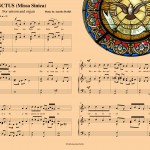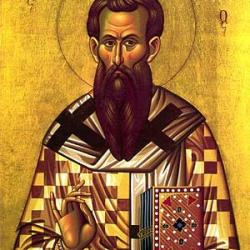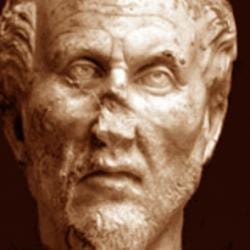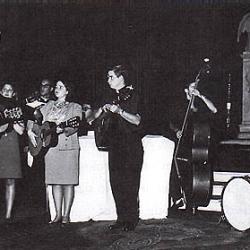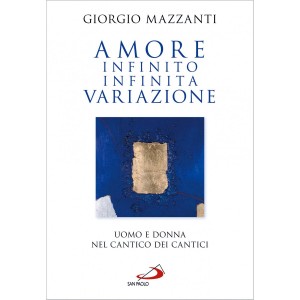 An interesting book was recently published by the Italian publisher Edizioni San Paolo. The book is called Amore infinito, infinita variazione. Uomo e donna nel Cantico dei Cantici (“Infinite Love, infinite variation. Man and Woman in the Song of Songs”). It is certainly an interesting and deep book. This “strange” poem (also known as the “Song of Solomon”), according many commentators, is at the heart of the Bible. It is also refreshing to read this book at a time when so many comments are flooding everywhere thanks to the Apostolic Exhortation Amoris Laetitia, the outcome of the Pope’s elaboration of the recent Synods dealing with family and human love.
An interesting book was recently published by the Italian publisher Edizioni San Paolo. The book is called Amore infinito, infinita variazione. Uomo e donna nel Cantico dei Cantici (“Infinite Love, infinite variation. Man and Woman in the Song of Songs”). It is certainly an interesting and deep book. This “strange” poem (also known as the “Song of Solomon”), according many commentators, is at the heart of the Bible. It is also refreshing to read this book at a time when so many comments are flooding everywhere thanks to the Apostolic Exhortation Amoris Laetitia, the outcome of the Pope’s elaboration of the recent Synods dealing with family and human love.
I thought it would be interesting to talk with the author of the book we mention at the beginning, Father Giorgio Mazzanti. He is a priest of the Diocese of Florence and professor of Sacramental Theology for the Urbaniana Pontifical University. He has already published many books of Theology and poetry. He was so kind to allow me to submit him some questions for this interview. Here they are, with his answers.
Why another book on the Song of Songs?
If a mythical text, if a poetic work is open to infinite interpretations, then also a biblical text, (in fact, much more a biblical text) can overcome the historical and cultural barriers that each time manifests something new that has roots in the first Origin, that is also always new and therefore always current. The Origin, the divine is always perpendicular to man, to his situation. No comment – even if is careful and detailed, even if philologically strict and historically documented – can exhaust the text of the Song of Songs: every age, including our current one, uses a different light to read it and understand it. So sometimes it happens that to illuminate the present time it is necessary to go back. Just as when we are in front of a painting: it is sometimes necessary to detach ourself from it and move back to see it better. Sometimes, unexpectedly, you can find decisive lights for today’s life. The Song still has much to say on human nuptial love, very human … because it is based on the divine, which does not clutter the love of man and woman, but enhances it.
Can you explain the significance of the title Infinite Love, Infinite variation?
A true love transcends, goes beyond all limits. It is open to the eternal. It’s fresh every time. It does not become stale, repetitive. In the same coordinates love always invents a new beginning, which exalts the past without being trapped in it to become its slave. True love sails on sight; does not absolutize any ‘frame’ of a past. Grateful for the times past, it is always attentive to the current time. To today. The authentic act of love is a virgin. As if it was an erupting start every time. True love has something of a wellspring, even when it reaches its mouth. Because every new arrival is a new reprisal of its beginning. There is always something more dazzling about the first time it starts.
What is the importance of Rabbi Akiba for the Song of Songs?
He has been able to make accepted as Word of God a clear erotic song, a text that dirties the hands, making it clear that it is God himself who created the Eros. The clear human reality of the love between man and woman was created and promoted by God. This is why such a human experience is already an exposure to the love of God, it is already a narration of the word of God. Without that Song we would miss something decisive for God and for humanity.
You have said in your book that at the end of the human, one can perceive the divine. Could you explain better?
For the reason that God has created the Eros, this – lived in its true integrity – makes us perceive God. When you get up to the summit of a mountain, you find that you are given an even broader horizon. You can feel it from there, from above. When a man and a woman come to the peak of their love they are projected over the abyss of God; They are fascinated and amazed. They realize that there is still a beyond and an Other, and perhaps that is the hidden source of their own love. Their love is coming from there. We open ourselves to God, not in failure, but in the fullness.
How should we read the Song of Songs?
It should be read immediately in its human aspect, in the way it looks. Without false modesty and without unnecessary spiritualizing sentimentalisms. The Canticle does not have a ‘story’ but exposes the components of bridal love. It tells about the necessary ingredients and constants; the size and extent. All these must be seized because the nuptial love is a totality that involves the body, senses, emotions, spirit, pain, longing, hurt and waiting, nature and time, space and history. Even a ‘spiritual’ reading of the Song can not be separated from this first basic anthropological foundation. To make in a way that is established a real analogy with the love of God, authentic human love must be respected. Human love is an indispensable premise to understand God, that is the one that that kind of human love has created.
Commenting on the Song you say that love itself is liturgy. What do you mean?
It is the recognition that everything comes from God and that love experienced is a praise of God. Nuptial love is the celebration of God’s memory and is a hymn of praise to God. The liturgical gesture envelops life and body, speech and gesture; It is not a moment apart, detached from daily experience. The past is itself liturgy. It is thanksgiving of those who live with grateful hearts the gift received that enhances human life and gladden the heart of man. Love itself is ritual, lives from rituality. It is the return of the identical that always generates something unexpected and unusual. As in repeated bends. Life is made of moments that make the texture of love. There is a commemorative royal dimension in nuptial love. It is a musical score to be performed in song and gesture in music and dance. Until the final fugue. Nuptial love is mystagogic: makes you enter into the mystery, brings to life the mystery”.
You have said in your book that love lives from the symbol and in the symbol. What do you mean?
If a symbol is what keeps together two “fires” united by a “power” (a third indispensable element!) that puts them and keeps them in continuous relation without melting and confusing them, bridal love can only be a symbol. It is already holding male and female together in the power of the Spirit. At the same time it holds together body and soul, time and eternity. Love leads beyond death, beyond the underworld. It surpasses death and attains the eternal. At the same time in the love of loved and beloved there shines through the mystery of God: the fire of God burning inside of the man-and-woman relationship. Where man and woman love each other, there goes the glory of God. Man and woman are a burning bush. There God appears and tells His real name: God is love, eros and charity at the same time; donation and exultation.
The Song is an erotic text? In which sense?
Meanwhile, the Song gives space to the body of man and woman, the body that is contemplated and praised for himself. The loved and the beloved admire each other’s body, weaving each other’s praises. The body says the human person: this is a whole. Now what moves the heart of man is the pursuit of celebration, the full and unending joy. This joy inhabits the body. Erotic pleasure is the consequent and inevitable glare of nuptial love in which the loved and the beloved are given and belong to each other. The nuptial gift is not habitual and tired giving of himself, but exuberant self-giving and joyful acceptance of the other. It is not a dull charity, but a celebration that gives joy. And this joy is not exterior, superficial, involves the whole person. It is not paroxysm but sweetness. This Eros has to do with the inebriation of the Holy Spirit. Not for nothing the Spirit is connected and identified with the wine and with fire. Eros is a spiritual joy that involves the body as a place of the spirit and of the divine. Eros is the wine that ferments in the cell of human bodies. Not to celebrate is not virtue but defeat. At the wedding feast in Cana of Galilee Christ gave the newlyweds a beautiful and abundant wine, because he wants the joy of man’s heart. But to this end something should be understood here.
In a paradoxical way the true Eros is virginity, integrity. A virgin is the person who is capable of holding together the three dimensions of the head, the heart and the passion of love. The one who is broken, who is divided against himself is lost. While the one who is a virgin, who possesses himself or herself in full, who is united in himself living the joy, overflows with joy. He knows how to communicate and embrace.
What is your impression of the Amoris laetitia?
Much of the Apostolic Exhortation is also a reminder of the Synod on the family and also the doctrine of the Magisterium of the Church. As such this representation of information may seem a bit cumbersome. From here Pope Francis warns, however, that he wants to present again the beauty of the love of man and woman. So he lingers to describe at length the breadth, characteristics but also the existential trajectory of that spousal love. This does not prevent him from manifesting himself as the Father and Shepherd who is attentive to the wounds of the children, which he tries to remedy. Pope Francis does not question the doctrine; he is trying to figure out how to come to the aid of fragile, injured and distorted situations. You cannot condemn someone for life. So there should always be open to anyone a way out through a gesture of mercy.
Can love described in the Amoris laetitia be seen in the perspective of the Song of Songs?
Pope Francis inspired himself with the hymn of the Letter of Paul to the Corinthians to describe nuptial love. It reiterates, along with Benedict XVI, the role of Eros to be taken as a positive value without demonizing it. He refers to love as a wedding dance, as a race and as a celebration, capable of “the very excitement that should be its propelling force. Young love needs to keep dancing towards the future with immense hope” (219). Without neglecting, as does the Song, the presence of dramatic moments that procures deep wounds and scars; not ignoring the occurrence of periods of dark night to cross without stopping to look for the love stronger than death, love which is that of Christ who died and rose from the dead. Pope Francis also alludes strongly – taking up an intuition of Dietrich Bonhoeffer on the “disillusionment” of the other – that only God fills the heart of man and takes his inner space and that each couple finds in this certainty their freedom and celebration (320).
(From O Clarim April 15, 2016)


